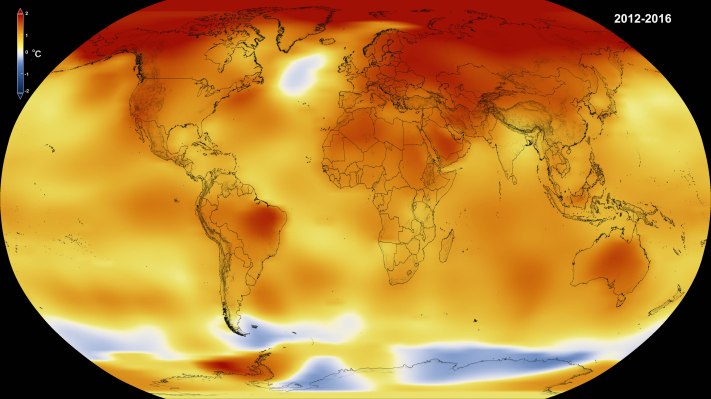Technology and the internet have empowered science just as they have business and communication. As with the others, tech has helped make scientific endeavors global in scope, robust against interference, and accessible by billions — with or without the consent of the powers that be. That’s just one reason why the current administration’s efforts to muzzle scientific inquiry will fail.
The list of federal agencies having their online communications tampered with or outright shut down is growing: the EPA, the National Parks Service, the Departments of Energy, Agriculture, Transportation, and the Interior, among others. Because of the ham-handed way it was done, it’s obvious these agencies are being reined in specifically with regard to climate change. Good luck with that!
First though, let’s dispel the possibility that we’re all jumping the gun here. This is a time of transition between administrations, after all. Why wouldn’t there be a few hiccups as things get rewired? Even major lapses like losing the entire Spanish version of the White House website could be bumps in the road.
But it isn’t a casual absence of, say, the words “solar,” “wind,” or “renewable” from the administration’s energy plan.
Nor is it accidental that there is no replacement for, or even a rebuttal of Obama’s climate change policy.
Nor that the National Parks Service was chastised after several tweets regarding climate change.
Nor that the CDC suddenly cancelled its conference on climate change.
Nor that cabinet nominees repeatedly refused to acknowledge the existence or urgency of climate change.
Nor that many other agencies receiving communications restrictions of varying intensity have jurisdiction over things largely affecting or affected by climate change.
Nor that the EPA has been gagged, hobbled, told to remove its page on climate change, and now to have its studies vetted by the administration before release.
This isn’t stumbling through a transition, or getting talking points straight, or playing up one side of an issue; we can talk about other things, just not climate change. It’s systematic suppression by the government of information relating to a topic it considers dangerous.
There’s a word for that — a word frequently misused these days, but the correct word in this case: censorship.
Unfortunately for the would-be censors, the days when that sort of thing worked are long past. The Streisand effect has for years proven the stronger force than even the most dedicated of information wranglers. But it won’t even get to that stage. You can’t just tell science to shut up.
Climate change in particular is a nasty one to try to put to bed. It’s taken decades of research by thousands upon thousands of scientists all over the globe to arrive and strengthen the theory (in the sense that gravity and evolution are also theories) of anthropogenic climate change, or global warming if you prefer. (A climatologist I spoke to likes “global weirding.”)
It isn’t a handful of eggheads in a small lab somewhere — you can’t reassign them, or bury their paper in a tiny journal. The results are already out there. Industries are already responding to it. The silence where there was once discussion will speak louder than anything those agencies might have said. It’s bizarre to even attempt, like telling everyone to stop talking about the moon.
But in addition to that, science is now as global and tech-savvy an institution as anything else. Tech and the internet are hand in glove with the global scientific community. There are thousands of small blogs detailing every experiment at every lab, university news services interviewing their own professors, open-access journals publishing new research for anyone to review, enormous global publications like Nature scouring the research world for stories and interesting results. Twitter, Facebook, and other social media mean a near-infinite number of formal and informal outlets for research and opinion. Cut one down, and two more take its place.
It simply won’t work. Of course, references to one of the most important problems faced by mankind today should make any administration uncomfortable, because they are an accusing finger pointed at policies past and a leash on policies to come. Perhaps the current administration will ignore climate change, as others have, and as others currently do. That would be disastrous, but to attempt to eliminate those references is absurd.
The sky is filled with satellites eyeing the atmosphere and reporting it to dozens of countries; the ocean is filled with buoys and ships testing the water and sharing it with dozens of agencies; papers are being written by dozens of authors from dozens of research institutions; sea levels are rising while we watch and entire nations are disappearing under the water. Silence that!
Every scientist is an individual pursuing their passion, be it to build a better robot, find a cure for a disease, or delve the mysteries of the planet’s climate. They write, they share, they talk with friends. They are a global community of truth-seekers, and they will not take kindly to the mistreatment of their peers, however naive and ineffective the means of that mistreatment. They’ll find a way to spread knowledge about the things they have discovered, and we’re going to help them. And yes, they’ll march.
By the way, in case the rest of the tweets disappear telling you that 2016 was the warmest year on record, 2016 was the warmest year on record.
